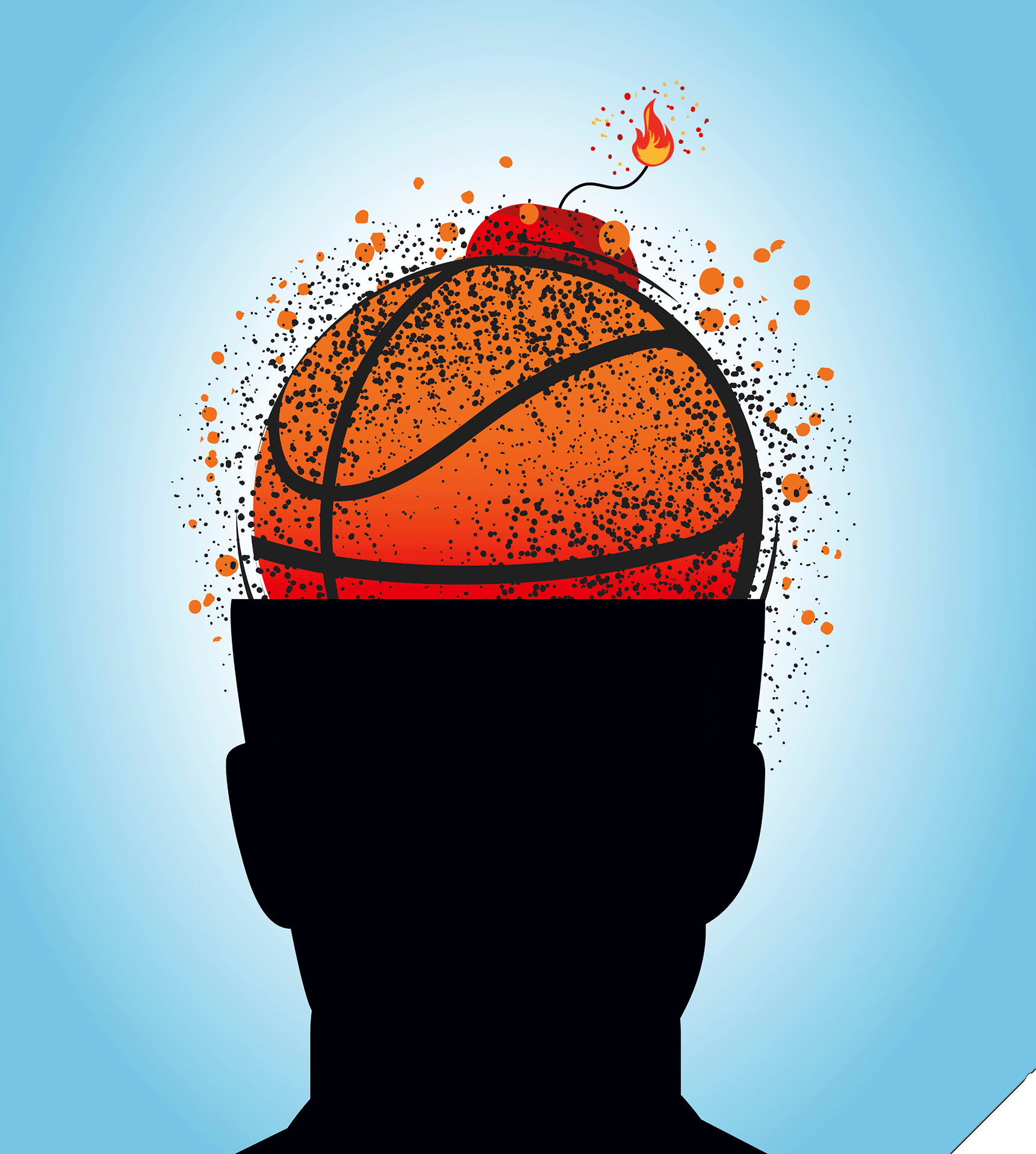Head in the game
When 13,407 Flyers fans pack UD Arena on a Saturday afternoon, they’re psyched to see the men’s basketball team dominate. But what does a player’s psyche have to do with winning a game?
With fans roaring in the stands, the players on the court might feel the pressure to perform or become amped up by the energy of the crowd. That’s in part thanks to the Yerkes-Dodson Law, said Allison Newlin, UD athletics mental health and performance counselor. The psychological phenomenon says that the height of physical performance follows stress or arousal — but only to a point. Too much or too little can lead to poorer play.
 Too much stress — like taking on a No. 1 seed — can predictably overwhelm and unfocus a player. But stepping onto the field against a team with a losing record can lead to too little stress. Focus and energy can be thrown off by low stress levels, and underestimating the opponent may end in a close match or even an upset loss, Newlin said.
Too much stress — like taking on a No. 1 seed — can predictably overwhelm and unfocus a player. But stepping onto the field against a team with a losing record can lead to too little stress. Focus and energy can be thrown off by low stress levels, and underestimating the opponent may end in a close match or even an upset loss, Newlin said.
Stress in the stands impacts gametime, too. An opponent who is worse on the scoresheet may change how fans react and remember games, according to Haozhou Pu, professor of health and sport science. He believes there is a critical fan element to the idea of playing down to your opponent.
“Fans impact the team performance in many ways such as creating a favorable game atmosphere for the home team, also known as home advantage,” Pu said. “From a psychological perspective, the cheers or jeers from fans might also impact the players’ motivation, physiological arousal and stress level, leading to either positive or negative performance outcomes.”
Fans likely have high expectations if their team is having a good season. Adding in an opponent that is statistically worse on paper, the expectations of the crowd are heightened.
“Fans tend to remember a close game more than a blowout, especially when they’re supporting a team thought to have an edge,” Pu said.
“A narrow win or even an upset loss would create a state of psychological discomfort and lead to more agony and disturbance among fans.”
These scenarios underscore why a focus on mental health — for everyone — is important, Newlin said. Today’s environment is much different than her own 20 years ago when she was an NCAA student-athlete, with more administrators, coaches, parents and athletes now prioritizing mental health. At UD, she sees evidence in how campus educates and supports the whole person.
Mental well-being can be a game changer physically for student-athletes, too.
“When our physical health struggles — sleep, nutrition, muscle recovery — it’s quite predictable and understandable that our performance will likely be impacted,” Newlin said. “Mental health is the same.”
Better play starts with managing and understanding mental health, Newlin said, but beyond gametime, student-athletes sometimes need to be reminded of who they are off the field.
“When athletes can find identity alongside of sport, it allows them to put the pressure of sport in perspective, as well as can provide reprieve when needing to recover from the emotional and/or physical toll of competition,” Newlin said.
With their heads in the game and their hearts held tightly by the fans in the stands, Flyer student-athletes can be at the top of their game and — for the fans’ sake — victorious in competition.